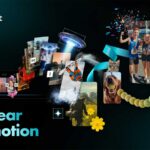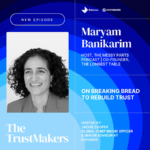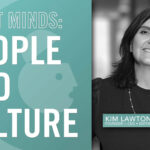By Christina Cubeta, CMO at Scope3
In 1954, the first International Advertising Festival was launched in Venice, guided by a simple yet powerful mission: to champion creativity, communication, and brand storytelling. After moving to Monaco and eventually settling in Cannes in the early 1980s, the festival has since become the industry’s most prestigious celebration of marketing excellence, and the supreme ability to tell rich, compelling brand stories without compromise. Its founding principle recognized that great advertising doesn’t just communicate; it captivates through genuine narrative craft.
As the latest advancements in marketing technology have shifted the conversation towards AI and automation, consider what happens to this rich storytelling as it makes its way through the media planning and buying process. Creative and strategy teams pour their time and expertise into crafting nuanced brand stories and standards, values, and audience insights – only to see that richness distilled into blunt keywords, categories, and demographic segments.
Consider the irony. We wouldn’t dream of reducing a great novel to bullet points or distilling a masterpiece film into a logline. Yet is that not what we do with brand stories when we translate them into media buying strategies? The nuanced narrative that took months to develop gets compressed into targeting parameters that strip away context, emotion, and meaning, when in fact, it’s often those that are dedicated to upholding emotion and connection which succeed in achieving both commercial success and long-term customer loyalty.
This translation problem isn’t just philosophical – it’s practical. When brands sacrifice their storytelling complexity for media simplicity, they lose the very authenticity that connects with audiences. Take Nike’s approach to ultra-marathoners – they don’t just want to reach the small percentage of people worldwide who actually run ultra-marathons. They want to find people who embody the same resilience, dedication, and psychological fortitude. The stories that resonate aren’t about running gear or race times; they’re about the deeper human themes of endurance, pushing boundaries, and finding strength in adversity.
Using AI to unlock a new depth of audience understanding
Why shouldn’t technology work in the exact way a brand wants to tell its story?
The next AI opportunity for us as marketers is to harness narrative intelligence – the ability to see beyond topics to the underlying themes that shape identity, aspiration, and decision-making. Because people don’t just consume content – they curate their identity through the stories they choose to engage with, and those stories reveal everything about how they’ll respond to your brand.
With the support of AI we can ask “Does this content tell a story that matters to my audience?”, alongside, “Is this content right for my brand?”. Imagine describing your ideal customer and brand narrative in natural language, then watching as AI automatically discovers the subreddits, articles, posts, and pages where those people actually engage with content that reflects their values and aspirations. The technology reveals meaningful connections, and affinities that traditional targeting would likely miss – such as identifying content centered on psychological resilience rather than just marathon training, or stories exploring work-life balance instead of focusing solely on password management tools. This would dramatically increase both reach and relevance – all while maintaining brand safety standards that open inventory rather than restrict it.
The future, ambitious CMO can now connect with why content resonates with their audience, as much as what they are engaging with through AI agents that can understand and find people based on the stories that move them. By removing the translation layer, this isn’t just preserving storytelling complexity – it’s amplifying storytelling intelligence that understands not just what audiences read, but why it moves them.
As with many technological revolutions, the case with AI is no different – there will always be those who lament the old ways. Hand-woven textiles are exquisite, but few would argue that mechanized looms destroyed the art of fabric. Steam engines had their doubters too – those who favored the romance of sails – yet railways linked continents in ways the wind never could. AI is no different. It’s the amplifier of human imagination; enabling us to create and connect on a scale we’ve never seen. Creation is in our nature and AI is simply the next instrument in humanity’s orchestra.”
Reclaiming Cannes Lions’ ethos: Storytelling that connects
The founding ethos of Cannes Lions recognized that great advertising doesn’t merely communicate; it captivates through genuine narrative craft. Now, as we enter an era shaped by AI-driven transformation, we have an extraordinary opportunity to honor that legacy while pushing creative boundaries further than ever before.
As 2025’s event unfolds, let’s reflect on why those early pioneers gathered in Venice over seventy years ago: they believed that creativity and storytelling lay at the heart of truly impactful marketing and advertising. Today, we have the tools to make that belief even more powerful, not by reducing stories to simpler forms, but by amplifying their emotional and cultural resonance across our fragmented digital landscape.











